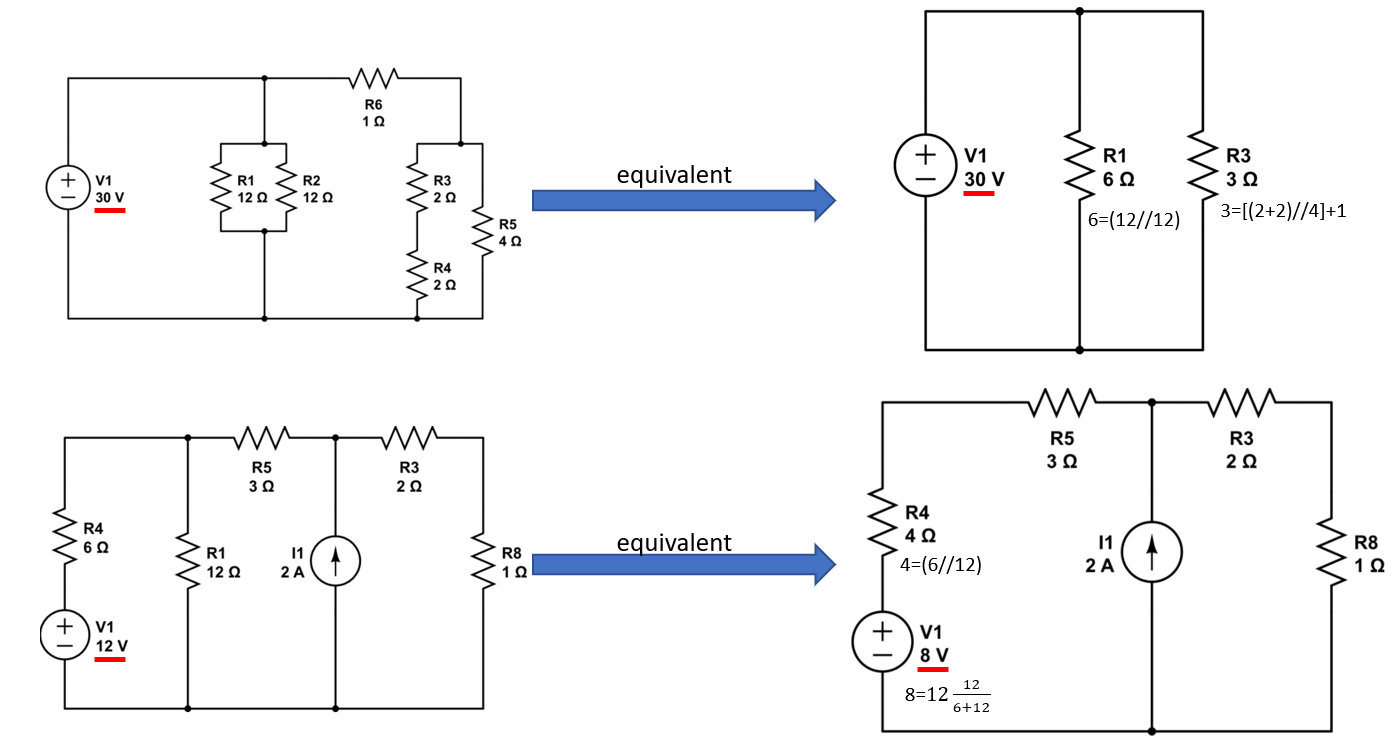Why should we modify the voltage source value if the resistor is connected with it directly?i mean,there are two different circuit below ,and their corresponding equivalent circuit.
As we can see,after equivalizing these circuit,we don't modify the voltage source of the first circuit,but we do modify the voltage source of the second circuit.i want to ask why,why should we modify the voltage source value if the resistor is connected with it directly?

